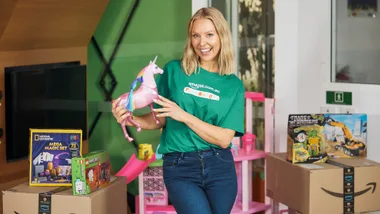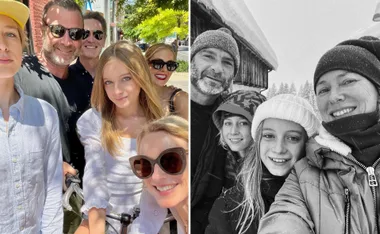Developmental milestones can happen, as the name suggests, miles apart but certain activities and play can help your baby to reach them. Knowing what these milestones are (and approximately when they come into play) may help to shape the way you interact with your little one.
And while everyone from your mum to the community nurse will tell you that ‘every baby is different’ and not to worry too much, it’s important to trust your instincts if you feel there are any real gaps between your bubs and her peers, especially if they are beginning to widen.
Once your baby is able to sit up, crawl and even cruise around, a whole new world opens up to you both in terms of developmental play. Her physical and social skills are exploding at a rapid pace and she’ll have great fun exploring everything within reach.
Six to nine months
By this stage your baby’s muscle development and growing coordination means play is becoming more active. She will enjoy being whooshed safely into the air and gently bounced up and down. And she’ll be exploring more and more with her hands.
Sitting pretty
Once she begins to sit at around seven months, your baby will be able to explore more expertly with her hands. She may enjoy sifting through a basket of different objects. Everything she grabs is explored, first by mouth and later with fingers. Lots of household items, as long as they are safe, make good toys. “Give her items to hold, like a napkin ring, a plastic tea strainer or simple plastic toys,” says child psychologist Dorothy Einon. “You can also give her things she can chew safely, for example, little plastic jars or clean tea towels.”
Bathtime fun
Bath toys also come into their own once your baby sits up well – buckets, beakers, ducks or boats will help understanding of volume and floating or sinking. Wheeled toys will also help understanding of cause and effect as she finds she can make them move.
Book worms
You can introduce books from her first few months, although many experts believe babies really start to benefit at around seven to nine months. By this stage your baby has the physical and developmental capabilities to really enjoy books – she can sit up on your lap, focus her eyes, look at pictures and hold the book in her hands. On top of that, she can hold her attention long enough to enjoy a short story and understand enough about human language to respond well.
Nine to 12 months
Your baby’s growing mobility means that there’s lots of fun to be had with toys now. When she begins crawling, from around nine months, she will want to investigate everything at her level. Give her toys that roll so she has to go after them and hang an activity centre at her height. Fill a bottom drawer with safe items such as jar lids, plastic boxes and bottles.
Hands on
Your child’s hand-eye coordination is improving all the time. She may now enjoy toys that involve posting a ball through a hole or putting rings on a plastic pole. At around nine months she also develops the pincer grip, which means she can pick things up using thumb and fingers. She’ll probably enjoy nesting beakers, sorting toys and a box of objects to empty and fill.
Casting about
Until now your baby will have dropped things without intending to, lacking the fine finger skills necessary to release an object on purpose. In her tenth or eleventh month, she develops this skill and may go through a phase of ‘casting’ – dropping and throwing things. This helps teach cause and effect, and also increases spatial awareness – and means she’ll love the simple game of dropping things (even if it drives you mad!).
Crazy about books
Your baby is developing long-term thought skills to do with memory, which means she understands many words and increasingly enjoys familiar activities such as reading books. Regular reading helps develop language. Reading nursery rhymes is especially good – rhythm and repetition help her remember words. Look for books with clear colourful pictures, simple words, and different textures – board, cloth or vinyl – so your baby can mouth and chew as well as listen.
Playing with you
Now she’s copying you more, play clapping games and sing to her. Let her give you things and then hand them back – help her with language development by using her name and telling her what you are doing. As ever, you are her best toy!
How to help
Don’t force your baby to play if she’s not interested – follow her lead.
Give her encouragement when she’s playing – it will give her confidence to explore the world.
Don’t rush her. Let her explore a toy without showing her how it works.
Ensure her toys are safe with no points or edges. Make sure she can’t tear, rip or swallow small pieces from them – remember, everything goes in her mouth!

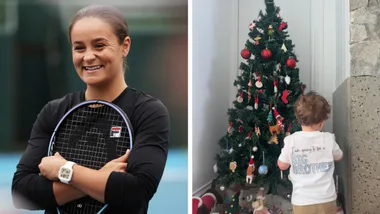


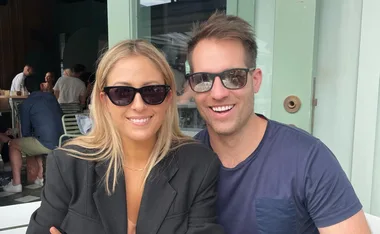
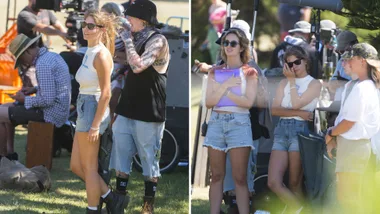

.png?resize=380%2C285)
